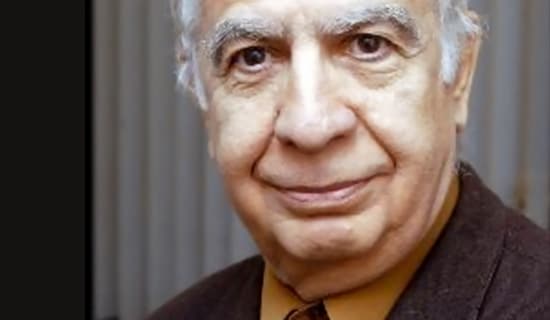The U.S.'s decision not to interrupt its bombing in Afghanistan during the month of Ramadan gave rise to harsh criticism in the Arab and Muslim world. U.S. Secretary of Defense Donald Rumsfeld's comments that Muslims had,throughout history, fought during Ramadan, led to a wave of protest in the Arab media, in which he was called"Sheikh Rumsfeld," and "Imam Rumsfeld."
However, Secretary Rumsfeld's statements were supported by Muslim clerics. For example, the unofficialWebsite of Egypt's Al-Azhar University, www.lailatalqadr.com, posted an article entitled "Muslim Victories DuringRamadan" by Dr. Fuad Mukheimar, an Al-Azhar University lecturer and secretary-general of the Egyptian Shari'aAssociation. In his article, Mukheimar reviews famous Muslim battles that took place during Ramadan, and clarifiesthe connection between fasting and Jihad. The following are excerpts from his article:
"Education for fasting has not been limited to preparing Muslims for battle and imbuing them with the meaning of soldiering, but also included waging a number of honorable battles during the month of Ramadan – to the point where this month came to be called 'The Month of Jihad.' The nation of Islam came to be called 'the Jihad-fighting nation,' and its moral values came to be called 'the values of warfare'…"
"Fasting is closely connected to Jihad in two aspects: First, determination and steadfastness until The Hour [Judgment Day]. Fasting is a continuous commandment, until Judgment Day… and the same is true for Jihad, because Muslim society needs it to defend [its] faith, honor, and homeland… The nation's fasting is [itself] education for Jihad, and as long as the nation fasts it will continue to be a Jihad fighter."
"Second, fasting and Jihad are connected [to each other] in body, spirit, and soul. To this end, Allah has set some Jihad battles for the month of fasting in order to gather together the army of Allah…"
"The significant battles during the month of Ramadan in which Allah granted victory to Islam and Muslims were:"
"The great battle of Badr, which took place in the month of Ramadan… was the first battle between believers and infidels. The Muslims demonstrated rare heroism, setting their souls on the points of their lances and preferring martyrdom to remaining alive. Allah gave them a mighty victory for Islam."
SUPPORT OUR WORK

"The Battle of the Ditch: The Muslims trained for this battle [during Ramadan], even though it [actually] occurred in the month of Shawal, which comes after Ramadan."
"The conquest of Mecca, which took place in the month of Ramadan: In this battle, Allah bestowed upon the Muslims the greatest act of grace, by giving victory to His Prophet and purifying his sacred house of the polytheists' defilement."
"The battle of Tabouk, [also] took place in the month of Ramadan. [In this battle] the soldiers of Islam, under the leadership of the Messenger of Allah, established in Tabouk a training and fighting camp during the month of fasting, so as to show the strength of the Muslims in the clash with the Byzantine army. The Byzantine army did not confront the Muslims. The Messenger of Allah returned from this battle during the month of Ramadan itself, and this was a victory for Muslims…"
"The Muslims conquered Rhodes during the month of Ramadan…"
"The Muslims invaded some [Spanish] southern frontier cities on the Andalusian coast and signs of the victory were revealed, and all this happened during the month of Ramadan…"
"In Ramadan, the Muslims, led by the hero Tarek bin Ziyad, vanquished King Roderick in the crucial battle that allowed the Muslims to take Andalusia, where they stayed for eight hundred years, disseminating Islam. From there, the Muslims spread out to Europe and other places in the world."
"During the month of Ramadan a great Muslim victory was won over the Crusaders under the leadership of [Salah Al-Din] [Saladin] Al-Ayubi. His advisors counseled him to rest from the Jihad during the month of fasting, but Saladin insisted on continuing the Jihad during Ramadan because he knew… that fasting helps to [achieve] victory, because during Ramadan the Muslims overcome themselves through fasting, and thus their victory over their enemies is certain. Fasting gives them determination, heroism, and will-power…"
"Saladin replied to his advisors, 'Life is short.' Allah learned of [Saladin's] loyalty and the loyalty of his soldiers, and gave them a decisive victory. They took the fortress of Safed, the greatest of the Crusader fortresses, in the middle of the month of fasting. [Saladin] conquered the lands of Al-Sham [Greater Syria] and purified Jerusalem of the tyranny and defilement of the Crusaders."
"During the month of Ramadan the Muslims resisted the barbaric Tatar invasion that took some of the capitals of the Islamic world. Afterwards, Allah led to the defeat of the Tatars by the Muslims under the leadership of the Sultan Qutuz, in the battle of 'Ein Jalout."
"On the 10th of the month of Ramadan [1973] the Muslims crossed the Suez Canal to liberate their land from the grip of the Zionist occupation. They waged a fierce battle in which America participated alongside Israel against the Muslim Egyptian army. The battle ended in a reasonable victory for the Muslims."
"All these battles, which took place during the month of Ramadan and in which Allah granted the Muslims victory over themselves [through fasting] and over their enemies, indicate that the month of Ramadan is the month of victories. When a Muslim fasts, Allah vanquishes for him the whispers [of Satan]… The inner enemy is ready to meet with the outer enemy. Whether this encounter takes place during Ramadan or during another month, decisive victory will be achieved. Through fasting, Allah unites the suppression of the appetite and the suppression of the enemy…"[1]
[1] www.lailatalqadr.com (Egypt), November 21, 2001.




